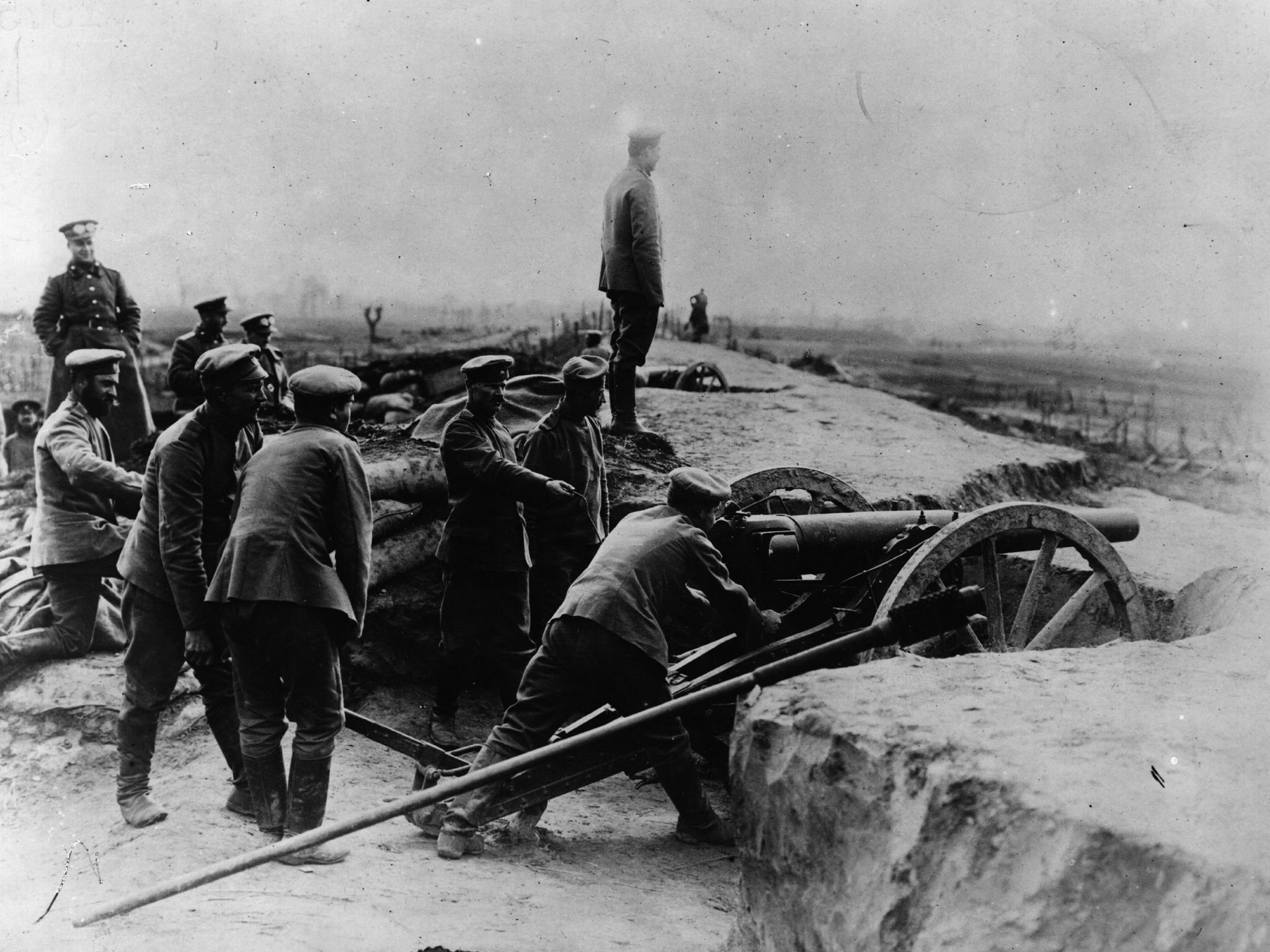A History of the First World War in 100 moments: The fall of a mighty Austro-Hungarian stronghold
The city of Przemysl was considered impregnable. Bernard Pares witnessed its abject surrender

Your support helps us to tell the story
From reproductive rights to climate change to Big Tech, The Independent is on the ground when the story is developing. Whether it's investigating the financials of Elon Musk's pro-Trump PAC or producing our latest documentary, 'The A Word', which shines a light on the American women fighting for reproductive rights, we know how important it is to parse out the facts from the messaging.
At such a critical moment in US history, we need reporters on the ground. Your donation allows us to keep sending journalists to speak to both sides of the story.
The Independent is trusted by Americans across the entire political spectrum. And unlike many other quality news outlets, we choose not to lock Americans out of our reporting and analysis with paywalls. We believe quality journalism should be available to everyone, paid for by those who can afford it.
Your support makes all the difference.The fall of Przemysl, which will now no doubt be called by its Russian name of Peremyshl, is in every way surprising.
Even a few days before, quite well-informed people had no idea that the end was coming so soon.
The town was a first-class fortress, whose development had been an object of special solicitude to the late Archduke Franz Ferdinand.
Of course it was recognised that Peremyshl was the gate of Hungary and the key to Galicia; but, more than that, it was strengthened into a great point of debouchement for an aggressive movement by Austria-Hungary against Russia; for the Russian policy of Austria, like her original plan of campaign, was based on the assumption of the offensive.
It was generally understood that Peremyshl was garrisoned by about 50,000 men, that the garrison was exclusively Hungarian, and that the commander, Kusmanek, was one of the few really able Austrian commanders in this war. The stores were said to be enough for a siege of three years.
The circle of the forts was so extended as to make operations easy against any but the largest blockading force… The practical difficulties offered to the Russians by Peremyshl were very great; for the one double railway line westward runs through the town, so that all military and Red Cross communications have been indefinitely lengthened…
For weeks past the fortress had kept up a terrific fire which was greater than any experienced elsewhere from Austrian artillery. Thousands of shells yielded only tens of wounded, and it would seem that the Austrians could have had no other object than to get rid of their ammunition. The fire was now intensified to stupendous proportions, and the sortie took place; but, so far from the whole garrison coming out, it was only a portion of it, and was driven back with the annihilation of almost a whole division.
Now followed extraordinary scenes. Austrian soldiers were seen fighting each other… Amid the chaos a small group of staff officers appeared, casually enough, with a white flag, and announced surrender. Austrians were seen cutting pieces out of slaughtered horses that lay in heaps, and showing an entire indifference to their capture.
The greatest surprise… was the strength of the garrison, which numbered not 50,000 but 130,000… Different explanations are offered; for instance, troops which had lost their field trains are reported to have taken refuge in Peremyshl after Rava Russka… A more convincing account is that Peremyshl was full of depots, left there to be supports of a great advancing field army. In any case no kind of defence can be pleaded for the surrender of this imposing force. The numbers of the garrison of course reduced to one-third the time during which the food supplies would last; but even so the fortress should have held out for a year.
The epidemic diseases within the lines supply only a partial explanation. The troops, instead of being all Hungarians, were of various Austrian nationalities; and there is good reason to think that the conditions of defence led to feuds, brawls, and in the end open disobedience… This was all the more likely because, while food was squandered on the officers, the rank and file and the local population were reduced to extremes…
The wholesale slaughter of horses of itself robbed the army of its mobility. The fall of Peremyshl is the most striking example so far of the general demoralisation of the Austrian army and monarchy.
First published in ‘Day by Day with the Russian Army, 1914-15’ by Bernard Pares (1915)
Tomorrow: The first fighter pilot
‘Moments’ that have already been published can be seen at: independent.co.uk/greatwar
Join our commenting forum
Join thought-provoking conversations, follow other Independent readers and see their replies
Comments